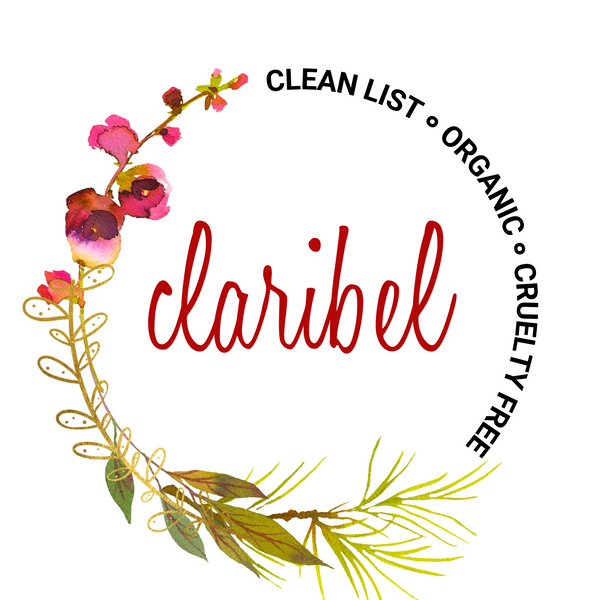
How to Choose the Best Gentle Cleanser for Acne Prone Skin
When you have acne prone skin, it’s easy to feel as if every product is your enemy. The specific needs of acne prone skin are often overlooked when it comes to skincare and all too often, the products we reach for are packed with harsh chemicals and oils that clog up our pores even further. Finding the best cleanser for acne prone skin can be tricky in this case.
It is important to look for products that are natural, oil-free, and non-comedogenic. These three factors will help you find a cleanser that won’t aggravate your acne or cause breakouts. Read on to discover more about the best cleansers for acne prone skin.
Our Botanical Acne Clarifying Cleanser is the best choice for acne prone skin. It's list of skin loving, acne fighting ingredients are safe for all skin types and non-irritating.
What is the Best Gentle Cleanser for Acne Prone Skin?
Before you even think about cleansers, you should first understand what a cleanser actually is. A cleanser is designed to remove dirt, oil, and impurities from the skin surface. It’s a water-based product that will remove excess oil, makeup, and any other leftover residue from the day to give your skin a fresh, clean start.
Many cleansers come with added exfoliating properties, which are important for acne-prone skin. When you have acne prone skin, you need to be extra careful when choosing the right cleanser. You’ll want to look for products that are natural, oil-free, and non-comedogenic.
A lot of cleansers contain harsh, synthetic chemicals that can actually make your acne worse. These chemicals may include sulfates, which can be particularly bad for acne prone skin.
Why Is Cleansing Important?
When you have acne prone skin, you should be cleansing your skin twice a day but with products that are not going to strip your skin.
Twice a day is necessary to keep your skin in tip-top condition.
Cleaning your skin regularly will help to prevent the build-up of excess oil and impurities, which can lead to breakouts and acne.
Cleansing your skin will also help it to stay hydrated, which is especially important for acne prone skin.
Cleaning your face twice a day will also help to minimize the appearance of wrinkles and other signs of aging.
Know Your Acne Triggers
Before you even think about picking up a gentle cleanser for acne prone skin, you should first know your acne triggers. By knowing your acne triggers, you can avoid them and take steps to minimize breakouts and prevent acne.
Below you’ll find a list of common acne triggers and the best ways to avoid them:
Acne-genic Foods. Certain foods can have a big impact on your skin and are well known acne triggers. Dairy, sugar, and foods high in fat are all common acne triggers that you should avoid as much as possible. If you can’t cut these foods out completely, try to keep them to a minimum.
Hormonal Changes. The menstrual cycle, pregnancy, and fluctuations in hormone levels can all cause acne to flare up. In the majority of cases, acne will subside after a few weeks following these changes. It is important to keep your skin clean and hydrated at all times to reduce the chances of breakouts.
Stress. Stress is another well-known acne trigger. While it is impossible to avoid stress entirely, you can take steps to reduce its impact on your skin. Meditation and keeping a consistent skincare routine can help to keep your skin clean, clear, and acne-free.
Important Acne Cleanser Ingredients
Salicylic Acid. Salicylic acid is a widely recognized and effective ingredient in the treatment of acne. Its ability to reduce acne is attributed to its exfoliating properties and its ability to penetrate the pores. Salicylic acid works by dissolving the type of skin debris that clogs pores and causes acne, effectively preventing future breakouts. By exfoliating the skin, it also helps to remove dead skin cells and reduce inflammation, which are common characteristics of acne-prone skin. Moreover, salicylic acid has anti-inflammatory properties, which can help to soothe existing acne and reduce redness and swelling. It is also known for its ability to regulate oil production, making it an excellent choice for those with oily or combination skin types. Overall, salicylic acid is a beneficial ingredient in skincare products aimed at reducing acne due to its exfoliating, anti-inflammatory, and oil-regulating properties.
Cinnamon. Cinnamon is considered beneficial for reducing acne due to its anti-inflammatory and antibacterial properties. The spice contains cinnamaldehyde, which has been shown to exhibit antimicrobial activity against acne-causing bacteria. Additionally, its anti-inflammatory properties can help reduce redness and swelling associated with acne breakouts. Cinnamon also has exfoliating properties, which can help in unclogging pores and preventing future acne flare-ups. Moreover, it can aid in regulating blood sugar levels, which may indirectly benefit acne by reducing insulin spikes that can contribute to breakouts.
Niacinamide. Niacinamide, also known as vitamin B3, has been gaining attention for its effectiveness in reducing acne. This water-soluble vitamin offers several benefits for the skin, including regulating oil production, reducing inflammation, and improving the skin's barrier function. These properties make niacinamide a valuable ingredient in skincare products targeted towards acne-prone skin. One of the key ways niacinamide helps in reducing acne is by regulating sebum production. Excess oil production can clog pores and lead to acne breakouts. Niacinamide helps to balance oil production, preventing the skin from becoming too oily or too dry, which can contribute to acne formation.
Sulphur Extract. Sulphur extract is considered beneficial for reducing acne due to its natural antibacterial and anti-inflammatory properties. When applied to the skin, sulphur helps to unclog pores, reduce excess oil production, and eliminate acne-causing bacteria. Additionally, sulphur has exfoliating properties that help to remove dead skin cells, promoting a clearer complexion and preventing future breakouts. The anti-inflammatory nature of sulphur extract can also help to reduce redness and swelling associated with acne, providing relief for those with inflammatory acne.
Zinc. Zinc extract is known for its potential in reducing acne due to its anti-inflammatory and antimicrobial properties. Zinc helps to regulate the production of sebum, the oily substance that can clog pores and contribute to acne formation. It also has an inhibitory effect on the growth of acne-causing bacteria, such as Propionibacterium acnes. Additionally, zinc extract can help to promote the healing of acne lesions and reduce the risk of scarring. Research has shown that oral zinc supplements and topical zinc preparations can be effective in managing acne symptoms. Furthermore, zinc extract has been found to have a soothing effect on the skin, reducing redness and inflammation associated with acne. As a result, incorporating zinc extract into skincare products or taking it as a supplement may be beneficial for individuals looking to improve their acne-prone skin.
Our Botanical Acne Clarifying Cleanser is the best choice for acne prone skin. It's list of skin loving, acne fighting ingredients are safe for all skin types and non-irritating:
Conclusion
If you have acne prone skin, you know all too well how frustrating it can be. It seems like nothing works and you’ve tried everything. It can feel as though you have no choice but to settle with your breakouts. Thankfully, there are cleansers out there that are perfect for acne prone skin. By following the steps above, you should have no trouble finding a cleanser that works for you and your skin.



